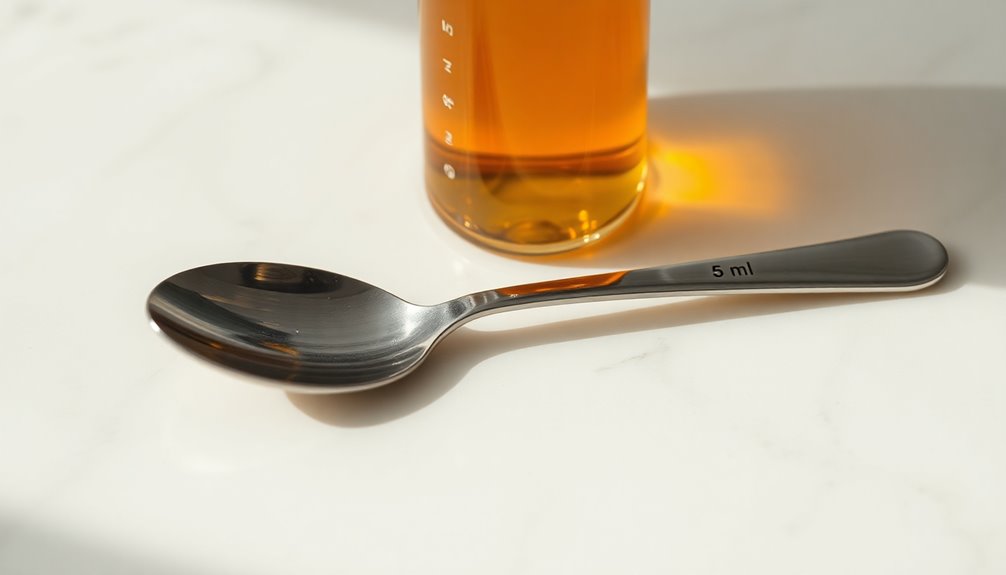The science behind coffee and caffeine showcases a captivating blend of chemistry and health. When you sip coffee, caffeine quickly absorbs, reaching peak levels in 15-120 minutes. It blocks adenosine receptors, enhancing your alertness and mood. This compound also offers notable health benefits, like reducing the risk of cardiovascular disease and diabetes. However, moderation is key; too much caffeine can lead to insomnia and anxiety. Understanding how caffeine interacts with your body can optimize your enjoyment and benefits. There's much more to uncover about how coffee can impact your life positively and negatively.
Key Takeaways
- Caffeine, a psychoactive substance, is rapidly absorbed and metabolized primarily by liver enzymes, influenced by genetics and lifestyle factors.
- Coffee contains an average of 75-100 mg of caffeine per 6-ounce cup, making it a significant source of this stimulant.
- Caffeine enhances alertness by blocking adenosine receptors, promoting the release of acetylcholine and increasing cyclic AMP levels.
- Moderate coffee consumption is linked to various health benefits, including reduced risks of cardiovascular disease, Parkinson's disease, and Type 2 diabetes.
- Caution is advised with caffeine intake due to potential side effects; the recommended daily limit for healthy adults is 400 mg.
Understanding Caffeine

Understanding caffeine is essential, especially since it's one of the most widely consumed psychoactive substances globally.
When you consume caffeine, it's quickly absorbed into your bloodstream, reaching peak levels in about 15 to 120 minutes. Nearly all the caffeine you ingest is taken up by your body, distributing throughout your tissues, including your brain.
The liver primarily metabolizes caffeine, using enzymes like CYP1A2, which is vital for clearing it from your system. Various factors influence this metabolism, such as genetics, smoking, and even certain foods. Genetic variability in CYP1A2 activity plays a significant role in how quickly caffeine is cleared from your body.
You might notice that caffeine's stimulating effects kick in around 30-60 minutes after you drink it, lasting for several hours and affecting your alertness, energy, and overall performance.
Sources of Caffeine

Caffeine is naturally found in the leaves, seeds, and fruits of over 60 plants, making it a common component of many foods and beverages you might consume daily. Notable sources include coffee beans, tea leaves, kola nuts, and cocoa beans. Guarana, native to the Amazon rainforest, also packs a caffeine punch, while yerba mate, made from *Ilex paraguariensis* leaves, offers a unique flavor and caffeine content. You’ll find caffeine in your favorite drinks, like coffee—averaging 75-100 mg per 6-ounce cup—and tea, with 60-100 mg per 16-ounce serving. In fact, brewed coffee is a natural caffeine source, with an average 8-ounce cup containing approximately 95-100 mg of caffeine. Even chocolate contains caffeine, ranging from 10 mg per ounce of sweet chocolate to 58 mg in unsweetened varieties. Energy drinks and bars often boost your caffeine intake further. For those looking for a quick caffeine fix, nespresso caffeine pods are a convenient option. These pods contain pre-measured amounts of coffee that can be easily brewed using a Nespresso machine, providing a consistent and convenient way to get your caffeine boost. With the wide variety of caffeine sources available, it’s important to be mindful of your intake and consider the potential effects on your overall health and well-being.
How Caffeine Works

The fascinating interplay of neurotransmitters and receptors in your brain reveals how caffeine boosts alertness and energy.
Caffeine blocks adenosine from binding to its receptors, specifically A1 and A2A types. This inhibition counters the sleep-promoting effects of adenosine, enhancing the release of acetylcholine, which is crucial for alertness. Additionally, caffeine is known to act primarily as an adenosine receptor antagonist, further amplifying its stimulating effects.
By increasing cyclic AMP levels, caffeine mobilizes intracellular calcium and stimulates noradrenaline neurons, further heightening your alertness. Additionally, it reduces cerebral blood flow, resulting in relative brain hypoperfusion.
You'll notice increased reaction times, concentration, and motor coordination. While the energizing effects kick in about an hour after consumption, they can lead to an energy crash later on, making timing essential for maximizing your productivity.
Health Benefits of Caffeine

While you might savor your morning cup of coffee for the boost it provides, research shows that caffeine offers a range of health benefits beyond mere alertness.
Moderate coffee consumption can lower your risk of cardiovascular disease by 15% and significantly reduce the chances of heart failure. Caffeine also protects brain cells, lowering the risk of Parkinson's disease and aiding those already affected.
Interestingly, drinking four or more cups daily may reduce melanoma risk by 20% and is linked to a lower mortality rate. Furthermore, coffee can help decrease the risk of Type 2 diabetes, enhance mood, and improve cognitive function. Additionally, coffee consumption is associated with a 19% lower risk of dying from heart disease, adding to its cardiovascular benefits.
With its antioxidants, caffeine supports overall health, making that daily cup even more rewarding.
Risks and Recommendations

Although enjoying coffee can be beneficial, it's crucial to be aware of the potential risks associated with caffeine consumption. You might experience side effects like insomnia, anxiety, increased heart rate, or even dizziness.
If you have heart conditions, diabetes, or osteoporosis, be cautious, as caffeine can exacerbate these issues. It's best to limit your intake to 400 mg daily—about four cups—for healthy adults, and under 300 mg if you're managing osteoporosis. Additionally, caffeine can interact with various medications, so it's important to consult with a healthcare provider.
Avoid concentrated caffeine products, and stay hydrated to counteract dehydration. Also, keep an eye on how caffeine interacts with other medications or health conditions, particularly if you have anxiety or bipolar disorders.
Monitoring your intake can help you enjoy coffee while minimizing risks.
Frequently Asked Questions
Can Caffeine Improve Athletic Performance?
Yes, caffeine can improve your athletic performance. It enhances focus, reduces fatigue, and increases muscular endurance and strength.
You'll find that it helps boost your speed and power output, especially in high-intensity activities or endurance sports. By consuming the right dose, you can benefit from prolonged performance and delayed fatigue.
Caffeine's effects last throughout competitions, making it a safe and effective choice for athletes looking to enhance their game.
Does Caffeine Affect Sleep Quality in Children?
Yes, caffeine can significantly affect sleep quality in children.
If you consume caffeine, especially in the afternoon or evening, you might notice delays in falling asleep and reduced overall sleep time. This happens because caffeine blocks the adenosine receptors that help induce sleep.
As a result, you may experience more sleep interruptions and feel tired in the morning.
Limiting caffeine intake, particularly before bedtime, can improve your sleep quality.
Are There Caffeine Withdrawal Symptoms?
Yes, you can experience caffeine withdrawal symptoms.
If you suddenly stop consuming caffeine, you might notice headaches, fatigue, irritability, and difficulty concentrating. These symptoms typically start 12 to 24 hours after your last caffeine intake, peaking around 20 to 51 hours.
While some may feel better within a few days, others could struggle for up to two weeks.
Gradually reducing your intake can help lessen these effects and make the transition smoother.
How Does Caffeine Impact Mental Health?
Caffeine can significantly impact your mental health, both positively and negatively.
If you consume it in moderation, you might experience improved mood, focus, and even enhanced effectiveness of antidepressants.
However, too much caffeine can lead to anxiety, exacerbate existing disorders, and disrupt your sleep, which can worsen your mental state.
It's essential to monitor your intake to find the right balance that works for you and supports your overall well-being.
Is Decaf Coffee Caffeine-Free?
No, decaf coffee isn't caffeine-free.
While it has significantly less caffeine than regular coffee, it still contains a small amount—typically around 7 to 9 mg per 8-ounce cup.
If you're sensitive to caffeine or trying to avoid it completely, even these small amounts can matter.
Conclusion
In conclusion, understanding coffee and caffeine can enhance your daily routine. With its various sources and health benefits, caffeine can boost your energy and focus. However, it’s essential to be mindful of your intake to avoid potential risks. By balancing your consumption and being aware of how caffeine affects your body, you can enjoy all the perks while minimizing drawbacks. So, the next time you sip your favorite brew, remember the science behind it. If you are interested in maximizing the benefits of caffeine, consider incorporating it into your daily routine in combination with intermittent fasting. Many people find that consuming coffee during their fasting period can help to suppress appetite and provide a much-needed energy boost. Remember to pay attention to how your body responds and adjust your intake accordingly. By combining coffee and fasting tips, you can optimize your overall health and wellness.










